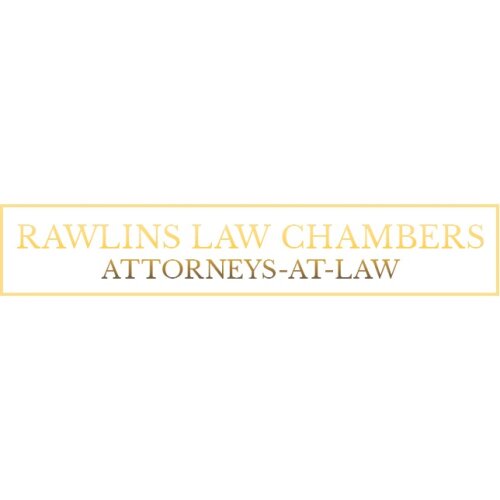Best Oil, Gas & Energy Lawyers in Bridgetown
Share your needs with us, get contacted by law firms.
Free. Takes 2 min.
List of the best lawyers in Bridgetown, Barbados
About Oil, Gas & Energy Law in Bridgetown, Barbados
Bridgetown, the capital of Barbados, serves as the focal point for the country's exploration and development of the oil, gas, and energy sectors. Traditionally, Barbados has been involved in limited oil production primarily for domestic consumption. However, in recent years, there has been a concerted effort to diversify and expand its energy profile, with increased attention to sustainable energy solutions including solar, wind, and biomass. This burgeoning energy landscape requires a robust legal framework to guide and regulate activities, ensuring compliance, environmental protection, and efficient resource management.
Why You May Need a Lawyer
The complexities involved in the oil, gas, and energy sectors often necessitate legal expertise to navigate challenges and opportunities effectively. Legal assistance may be required in the following situations:
- Negotiating and drafting contracts for exploration, production, and energy supply;
- Understanding regulatory compliance related to environmental protection and safety standards;
- Handling disputes or litigations arising from operations or partnerships;
- Advising on investment and financing opportunities in energy projects;
- Assistance in obtaining permits and licenses for energy installations;
- Guidance on taxation and royalties related to oil and gas exploration;
- Compliance with local content requirements and international trade standards.
Local Laws Overview
The legal landscape governing oil, gas, and energy in Bridgetown operates under various legislative instruments and policies. Some key aspects include:
- The Petroleum Act: Regulates exploration, development, and production of petroleum resources.
- The Renewable Energy Support Mechanisms: Encourage the development of renewable energy through incentives and strategic investments.
- Environmental Protection Laws: Oversee the environmental impact of energy operations and ensure sustainable practices.
- Energy Efficiency Regulations: Aim to improve energy use efficiency and promote conservation measures.
- The Fair Trading Commission: Ensures fair pricing and addresses consumer issues in utility markets.
Frequently Asked Questions
What is the current state of the oil and gas industry in Barbados?
As of now, Barbados is exploring further development of its offshore resources, while traditional onshore oil production continues. The focus also includes expanding renewable energy capabilities.
Do I need a permit to establish a solar energy system for my business?
Yes, obtaining the necessary permits is crucial to ensure compliance with local building codes and regulations pertaining to renewable energy installations.
How do environmental laws affect oil and gas operations?
Environmental laws dictate strict compliance with standards to minimize ecological impact, mandating assessments, mitigation strategies, and adherence to safety protocols.
Are there incentives for investing in renewable energy in Bridgetown?
Yes, the government offers various incentives, such as tax breaks and grants, to foster investment in renewable energy projects.
What should I do if there is a legal dispute with my energy provider?
Consulting with a lawyer who specializes in energy law can help mediate the dispute and explore legal remedies available under local regulations.
Can foreign investors participate in Barbados’ energy sector?
Yes, Barbados welcomes foreign investment in its energy sector, subject to compliance with corporate and investment laws.
How do I ensure compliance with energy efficiency regulations?
Engage with legal and technical professionals to assess energy use and implement practices that meet regulatory standards for efficiency.
How are energy prices regulated in Barbados?
The Fair Trading Commission oversees the regulation of energy prices, ensuring that they reflect fair market practices and protect consumer interests.
What are the taxation norms for companies in the oil and gas sector?
Taxation for oil and gas companies includes corporate taxes, royalties, and other industry-specific levies, requiring strategic planning for compliance.
What role does the government play in the energy sector?
The government establishes policy frameworks and regulatory bodies to oversee the sector, ensuring sustainable development and addressing public concerns.
Additional Resources
- The Barbados National Oil Company Limited (BNOCL) for industry insights.
- The Barbados Renewable Energy Association (BREA) for renewable energy advocacy and information.
- The Fair Trading Commission for guidance on consumer protection laws.
- The Ministry of Energy and Water Resources for policy and regulatory updates.
Next Steps
If you need legal assistance in the oil, gas, or energy sectors, consider the following steps:
- Identify the nature of your legal need, whether it involves contracts, compliance, or disputes.
- Seek referrals for experienced lawyers specializing in energy law who understand Barbados' local laws and regulations.
- Prepare relevant documents and information before consulting a lawyer to ensure efficient and effective advice.
- Engage a lawyer to guide you through complex legal frameworks and represent your interests in negotiations or litigation.
Lawzana helps you find the best lawyers and law firms in Bridgetown through a curated and pre-screened list of qualified legal professionals. Our platform offers rankings and detailed profiles of attorneys and law firms, allowing you to compare based on practice areas, including Oil, Gas & Energy, experience, and client feedback.
Each profile includes a description of the firm's areas of practice, client reviews, team members and partners, year of establishment, spoken languages, office locations, contact information, social media presence, and any published articles or resources. Most firms on our platform speak English and are experienced in both local and international legal matters.
Get a quote from top-rated law firms in Bridgetown, Barbados — quickly, securely, and without unnecessary hassle.
Disclaimer:
The information provided on this page is for general informational purposes only and does not constitute legal advice. While we strive to ensure the accuracy and relevance of the content, legal information may change over time, and interpretations of the law can vary. You should always consult with a qualified legal professional for advice specific to your situation.
We disclaim all liability for actions taken or not taken based on the content of this page. If you believe any information is incorrect or outdated, please contact us, and we will review and update it where appropriate.








